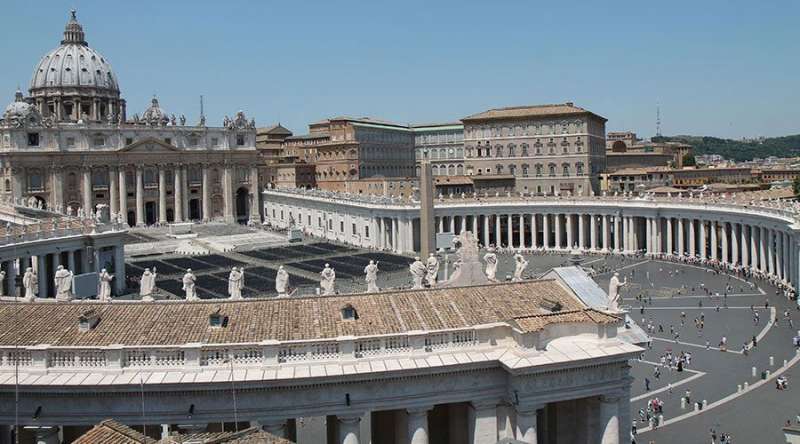The Board of the European Payments Council (EPC) approved last month the extension of the geographical scope of the Single Euro Payments Area (SEPA) to include Vatican City State and the Holy See. Mostly seen as insider news, the decision in fact bespeaks a considerable boost to the financial system of the Vatican.
It is especially noteworthy that the European Payments Council made its decision with the consent of the European Commission. This means that the Vatican’s financial system has been recognized by the European Union as an autonomous and independent system.
SEPA harmonizes the way electronic euro payments are made across Europe.
A Holy See Press Office release Nov. 30 explained that “SEPA allows European consumers, business and public administrations to make and receive credit transfers as well as direct debits under the same basic conditions and makes all cross-border payments in euro as easy as domestic payments.”
This means that Holy See’s financial transfers will be considered to take place within the European Union’s system. Until now, Italy has considered Vatican City State to be a non E.U. country for financial purposes, and asked that bank transfers follow the requirements of countries outside the E.U. Now, it will not be possible to consider Vatican City State a non-E.U. country for financial purposes.
According to the Holy See Press Office release, “it is foreseen that, as of March 1, 2019, the SEPA schemes are open to the financial institutions of the Vatican City State/Holy See once they have joined.”
The Vatican will join a group of 36 countries: the 28 E.U. member states plus Iceland, Norway, Liechtenstein, Switzerland, Monaco, San Marino, the Principality of Andorra and the Vatican City State/Holy See.
René Bruelhart, president of the Vatican Financial Intelligence Authority, stressed that “the successful application of SEPA is a very positive sign. It helps to facilitate payments and harmonizes such services. Furthermore, it demonstrates the Holy See’s efforts to enhance financial transparency.”
"The participation in the geographical scope of SEPA is a step forward for the consolidation of the domestic system. A Vatican IBAN code will be issued for the transfer of funds and this is a significant change." said Tommaso Di Ruzza, the director of the Financial Intelligence Authority.
He added that "SEPA schemes are open to public administrations. For the future this is an opportunity also for those bodies of the Holy See and the Vatican City State competent for sovereign finance".
The inclusion of Vatican City State in the SEPA schemes is the first phase of a wider project. Phase two will be the application of the Institute for Religious Works (IOR) to SEPA. In order to be accepted, the IOR will have to prove it fits to the regulatory framework and that it has the required technical skills.
This step forward toward an international recognition of the Vatican financial system is due to the strengthening of the regulatory framework.
On Sep. 19, 2018, the Financial Intelligence Authority issued two new regulations (the n. 4 and 5) on due diligence and suspect transactions report. The new regulations were included in a framework that made the Vatican City State/Holy See compliant with all the requirements of the SEPA area.

